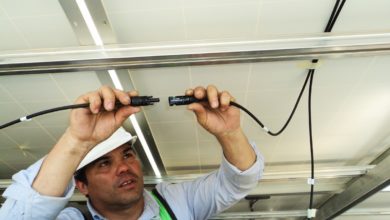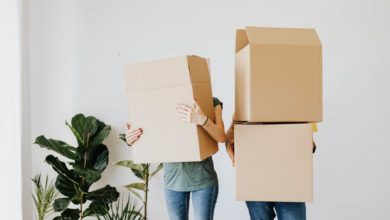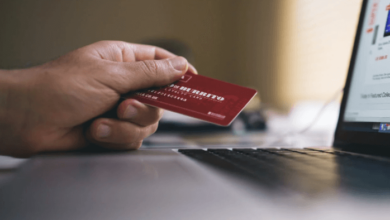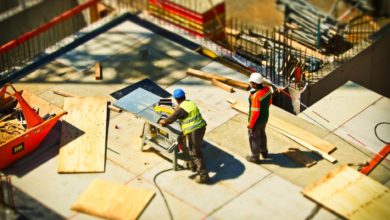Home Safety Tips for First-Time Buyers
KEY TAKEAWAYS
If you’re a first-time home buyer, there are several things you need to know about safety. Having these tips can help you find your dream home without falling into common mistakes.
One of the best ways to protect your new home is by ensuring there are no weak entry points. This includes making sure windows and doors have strong locks.
Inspecting the Property
When buying a home, it’s important to get a professional inspection done. The inspector will check for things like leaks, mold, and structural damage. They’ll also look at the roof, windows, and doors to make sure that they are in good condition.
The home inspector should also take photos of any issues that they find, so that you can see them for yourself. This will help you understand what the inspector is talking about and avoid any surprises after you’ve bought your house.
If there are any significant problems with the property, you should negotiate a lower price or get the seller to fix them before closing. This can be a great way to save yourself some money and make the process of buying a home more enjoyable.
You can also encourage your real estate agent to attend the inspection with you so that you can ask questions and shadow the inspector. This will make the inspection process go much more smoothly and give you more buying power.
Establishing Home Security
Home security isn’t the sexiest topic around, but it’s one of the most important topics for first-time homebuyers to consider. After all, a burglary happens every 25.7 seconds in the US.
The good news is that it’s easier to make your house safer than you might think. Even simple things can help, like putting curtains or blinds on your windows and setting light-timers on lamps and outside lights.
Ideally, you’ll want to start with the doors and windows that are most visible from the street. Look for security devices that can deter burglars from attempting to break into your home.
It’s also a good idea to speak to a home security professional. Many major companies offer free consultations where a representative will visit your home to assess your needs and prepare a proposal.
Preparing for Emergencies
Getting ready for emergencies is an important aspect of home safety. It can save you from injury and trauma in a disaster.
Whether it’s a tornado, hurricane or flood, emergencies can happen without warning. They can cause damage to your home, your family and your belongings.
One way to prepare for an emergency is to create a plan that details what to do when something happens. This can include evacuation plans, a meetup location and an emergency contact list.
Keep this information at a central location so you can access it quickly. Also, make copies of all important documents such as insurance policies, property records, medical information and passports.
When disaster strikes, having access to this information will help you begin the recovery process much faster than if you had to search for it. If you are a first-time buyer, it is important to take extra steps to ensure your family’s safety during and after an emergency. Hopefully, these tips will help you stay safe and happy in your new home.
Being Aware of Your Surroundings
Buying your first home is an exciting and life changing event. Before you sign on the dotted line, be sure to research and ask the right questions.
This will not only save you time and money, it will also ensure that your new home is everything you hoped for and more. Besides the obvious home inspections and legalities, be sure to ask about the surrounding community as well.
Among other things, be sure to check out the local schools and commute times, the state of the roads and sidewalks and even what type of parking you’ll find on your street. You’ll be glad you did!
Hopefully these tips will help you make the best possible decision for you and your family. It’s also worth noting that you should never rush into a deal. It can be a stressful process, and you don’t want to end up with the wrong home.
Staying Safe During Natural Disasters
Whether you are in a hurricane-prone area, or just moved to a new city, staying safe during natural disasters is essential. Having a plan in place before the storm hits will make it easier to get through an emergency and to recover once it is over.
Having a prepared home will save you money by avoiding costly repairs after the disaster has occurred. Review your homeowners insurance policy to see if any coverage is included for damage caused by a natural disaster.
Staying safe during a natural disaster requires preparation, planning and perseverance. With these tips, you can avoid the most common mistakes and ensure you are prepared for an emergency.
Protecting Your Home from Fire Hazards
Protecting your home from fire hazards is a crucial part of any homeowner’s safety plan. According to the NFPA, house fires occur every 89 seconds in America and result in thousands of deaths and billions of dollars in property damage each year.
A working smoke alarm and a fire escape plan that you practice regularly can help keep your family safe from a house fire. If a fire occurs, you may have less than two minutes to get out safely, so making sure your family knows how to escape is vitally important.
Install a smoke detector on each level of your home and inside bedrooms and outside sleeping areas, and test the batteries regularly. Also, have a fire extinguisher on each level and in the kitchen. Choose a supplementary extinguisher for your garage or workshops, as these are areas where there’s more flammable material.
Protecting Your Home from Burglary
Burglars are constantly looking for new places to break into, so you need to do everything you can to keep your home safe and secure.
In addition to ensuring your home is well-lit, be sure to lock all doors and windows when you leave. Leaving your home unattended is a very tempting target for criminals, so keep this in mind when you’re at work or away on vacation.
Also, make sure that your home is not a convenient place for thieves to hide by removing tall trees and shrubs. Trimming these bushes and tree branches will eliminate any cover that would make it easier for a burglar to enter your house through the window or from the roof.
It’s also a good idea to leave a light on at all times when you’re away. This will create the illusion that you’re still at home, and a crook won’t be as likely to attack a home where they can see that it is empty.
Protecting Your Home From Water Damage
Water damage is one of the most common and costly home disasters. It can come from a burst pipe, a leaky roof, or malfunctioning appliances.
The good news is that many homeowners can avoid significant water damage by taking preventative measures and making repairs as needed. Most importantly, homeowners should know where their main water shut-off valve is located and turn it off if a leak is discovered.
Another important part of preventing water damage is regularly inspecting your home’s plumbing. This can help you identify weak areas in your pipes and make necessary repairs before they become an issue.
Using a moisture meter can also help you detect areas that may be prone to water leaks, such as around sinks and bathtubs. Leaks in the walls or under the sink are often hidden so it is important to keep an eye on these areas. If you suspect a leak in these areas, fix it immediately to minimize the risk of further water damage and mold growth. This can result in health issues for the inhabitants of your home and increased insurance costs.
To Sum Up…
Buying your first home can be exciting but also nerve-wracking. By following the above home safety tips and taking the necessary steps to make sure your new home is safe, secure, and well-maintained, you’ll have peace of mind knowing that your family is in a comfortable and secure environment.
Protect your home and ensure that it is a safe place for you to live. With the right precautions, you can make sure that your first home is as enjoyable and worry-free as possible.





